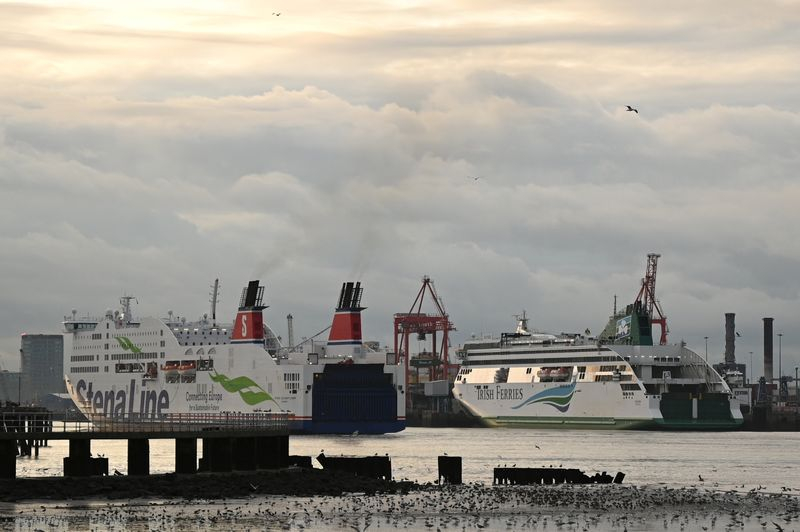More Irish-British trade diverted via Northern Ireland post-Brexit – port boss By Reuters

DUBLIN (Reuters) – More firms are shipping goods between Ireland and Britain via Northern Ireland to avoid post-Brexit red tape and delays, the head of Dublin Port said on Monday, describing it as a “worrying” and potentially permanent development.
The introduction of checks on some goods since neighbouring Britain left the European Union’s trading orbit on Dec. 31 has led to a sharp fall in trade between the two countries and a big increase in shipping routes from Ireland to mainland Europe.
However the chief executive of Dublin Port said some cargo is also being diverted through British-run Northern Ireland. Ireland’s largest port reported a 29% year-on-year drop in trade volumes between Ireland and Britain in the first quarter.
“The dislocation of a lot of volume to ports in Northern Ireland is worrying,” Eamonn O’Reilly (NASDAQ:ORLY) said in a statement.
“Back in 1990, before the (European) Single European Market was established, more than a third of Ro-Ro (roll-on/ roll-off service) trade chose services to and from Northern Irish ports rather than use services in and out of Dublin Port.”
O’Reilly said port operators would not get a proper sense until later in the year as to how much of the decline is due to the new border regimes and whether the dislocation will be a permanent feature.
Roll-on/roll-off volumes to and from France, Belgium and the Netherlands increased by 26% in the first quarter while lift-on/lift-off services between Dublin Port and mainland European ports were 18% higher, the statement said.
For decades, Irish traders have preferred to ship goods to the rest of Europe via Britain, taking a short sea crossing to ports in Wales and then a hop to France.
O’Reilly said Dublin Port was optimistic that the so-called UK landbridge will re-establish itself as a fast and cost-effective option in the months ahead.

